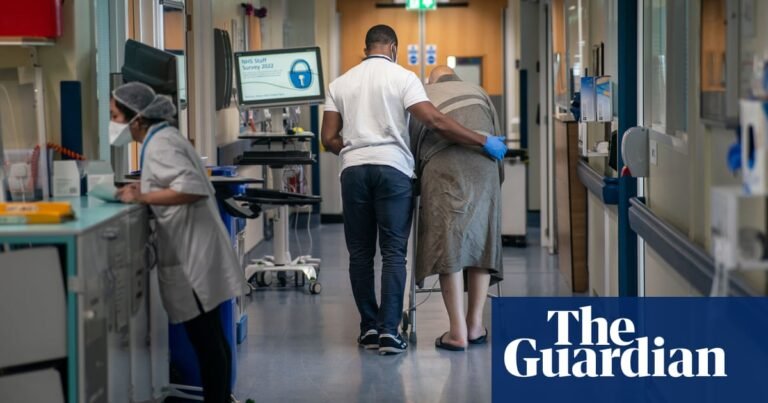Money for hospitals in England is to be linked to patient ratings, ministers have announced, as one of the health bosses tasked with implementing the government’s 10-year plan for the NHS in the country warned it faced an existential threat unless it reconnected with the public.
The measure, under which healthcare providers could lose a proportion of their funding if patients are unhappy, is part of a package the health secretary hopes will incentivise investment in services that could prevent the need for hospital visits – and encourage listening to patients more.
But clinicians have expressed concern the proposal risks performing surgery on the NHS with a blunt instrument, rather than the scalpel required.
Under the proposals, which were first reported by the Times, patients are to be asked if they would like the full funding for their care to continue to be paid to the service they used, or if a proportion should go to a regional fund instead. According to the Times, about 10% of “standard payment rates” could be diverted if a patient is unhappy.
“This will be introduced where there has been a track record of very poor service and evidence that patients are not being listened to,” the Department for Health and Social Care said on Saturday, adding that it would be run initially as a trial.
But Matthew Taylor, the chief executive of the NHS Confederation, said: “None of our members have raised this idea with us as a way of improving care and, to our knowledge, no other healthcare system internationally adopts this model currently.”
He said: “Patient experience is determined by far more than their individual interaction with the clinician and so, unless this is very carefully designed and evaluated, there is a risk that providers could be penalised for more systemic issues.”
Other measures are designed to help treat people in the community – before they need hospitalisation. The health secretary, Wes Streeting, said: “If patients can’t get a GP appointment, which costs the NHS about £40, they end up in A&E, which costs as much as £400.”
It came as the new head of the NHS in England said the service had “built mechanisms to keep the public away”. Sir Jim Mackey told the Telegraph: “We’ve made it really hard, and we’ve probably all been on the end of it. You’ve got a relative in hospital, so you’re ringing a number on a ward that no one ever answers. The ward clerk only works nine to five, or they’re busy doing other stuff; the GP practice scrambles every morning.”
Mackey warned that the disconnection between NHS services and the public could result in the loss of the public health service altogether. “The big worry is: if we don’t grab that, and we don’t deal with it with pace, we’ll lose the population. If we lose the population, we’ve lost the NHS.”
Streeting said on Wednesday that the government’s 10-year plan would also aim to “address one of the starkest health inequalities”, which he claimed was the unequal access to information and choice when it came to healthcare.
Mackey said: “We’ve got to somehow reorientate it; think about how do we find people who need us, how do we stop thinking: ‘It’s going to be a pain in the arse if you turn up because I’m quite busy,’ and instead think about how do we find out what you need and get it sorted.”
